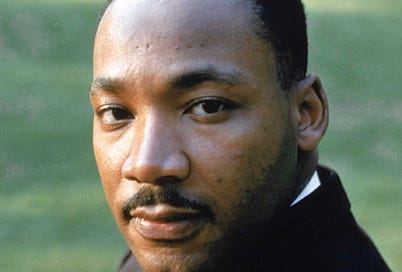A few weeks ago, a dad asked me if there were plans to celebrate Black History Month in February at The Academy. This African American father shared with me his heart for his heritage and was curious where our curriculum might focus on his people’s culture and contributions, as well as the racial tensions and civil rights struggles that (unfortunately) still exist today.
I was glad for the question. I love when parents (especially dads) engage in matters as this father did – with full disclosure of motive in asking and with genuine interest in honest dialogue. Our discussion blessed and reminded me of the importance and need for diverse unity in our school and within the Body of Christ.
In answer to his question, I told him our curriculum is not aligned by particular demographics (Black History in February, Women’s History in March, Hispanic Heritage in September, American Indian History in November, etc.), as breaking up our study in this way can work against our emphasis on overall narrative so crucial to students learning about our past. This is as much a pedagogical decision as anything; students learn the ebb and flow of history more effectively when it is contextualized chronologically rather than “packaged” in the more modern made-for-TV monthly “histories” (particularly if these histories don’t line up with the narrative our students are studying).
In terms of school-wide celebrations and observations, because we are a Christian school, we align ourselves with the Protestant Church calendar (Advent, Christmas, Lent, Easter, Pentecost). This doesn’t mean there aren’t other worthy seasons to celebrate or holidays to observe, but we have to make decisions by some criteria and have chosen the Church calendar to guide us in doing so.
That said, we do not have school today in honor of Dr. Martin Luther King and his legacy as a Christian pastor and non-violent leader of the civil rights movement. This is the first year our school has observed the holiday, and we hope all Academy parents will participate with their children in discussing Dr. King and how God used this particular man at a particular time to bring about needed change in our country. (One thing I try to do with my kids each year is watch and discuss MLK’s “I Have a Dream” speech together, but there are several other events in our OKC community honoring his life for those in search of a more physical activity.)
One of my favorite emphases to teach in our eighth grade New Testament class is the Christian foundation for racial reconciliation as lived out by the early Church in the book of Acts. One cannot read about the cross-cultural linguistic understanding given by the Holy Spirit at Pentecost in Acts 2 or the Apostles ensuring the care of both the Hellenist and Hebrew widows in Acts 6 or Peter and John witnessing the coming of the Spirit to the Gentiles in Samaria in Acts 8 or Peter’s vision and interaction with Cornelius and the Caesarian Gentiles in Acts 10 (to name just a few) without recognizing God’s heart for unity among his people. Paul’s words in Galatians 3:28-29 sum up how we in the Church are to view one another:
“There is neither Jew nor Greek, there is neither slave nor free, there is no male and female, for you are all one in Christ Jesus. And if you are Christ’s, then you are Abraham’s offspring, heirs according to promise.”
As an heir according to promise, Dr. King knew and built upon this Christian foundation of reconciliation; without it, he would have had no message (listen to the biblical dependence of King’s “I’ve Been to the Mountaintop” and imagine it without its biblical references). Thus, when we honor Dr. King on Monday, we really honor the Gospel – the foundation of any freedom, equality, and unity we have. May this same Gospel be the one that redeems and restores the racial relationships in our country, our churches, our schools, our hearts, and especially the hearts of our children.




